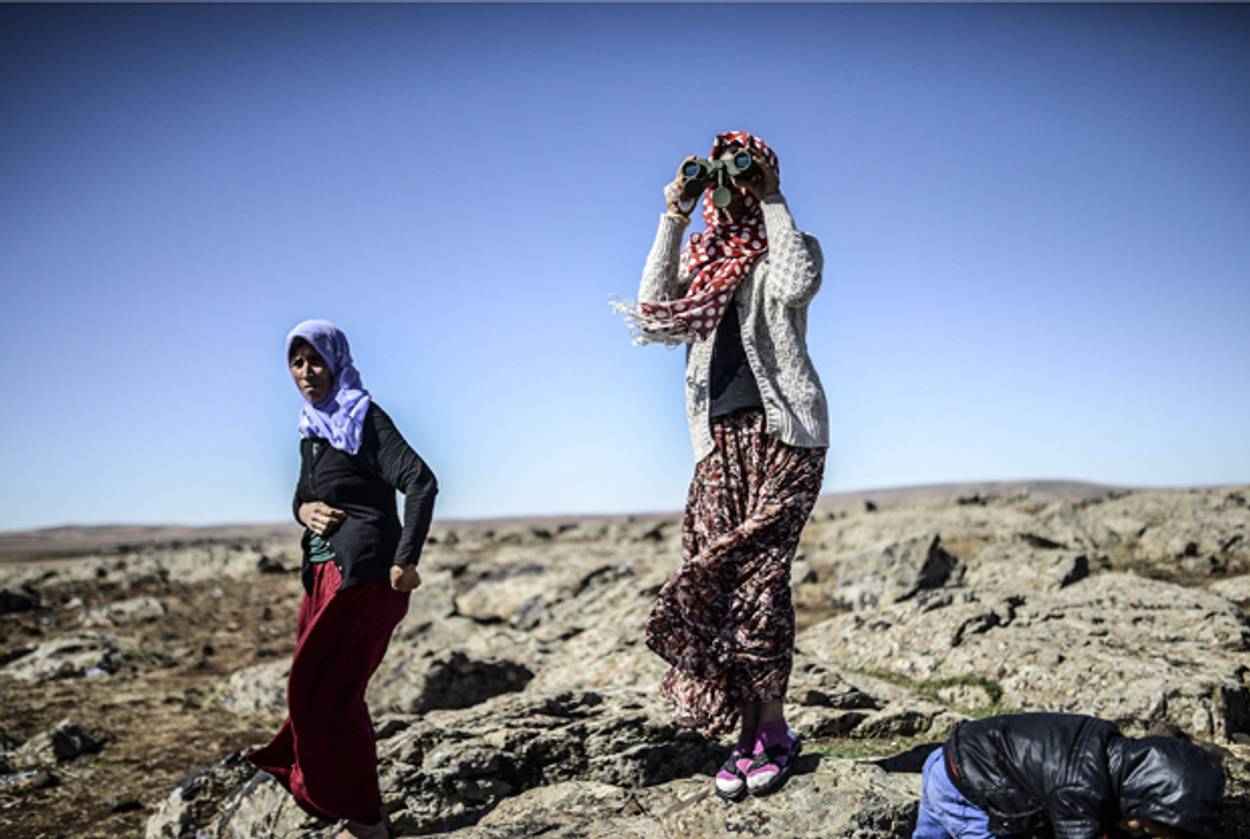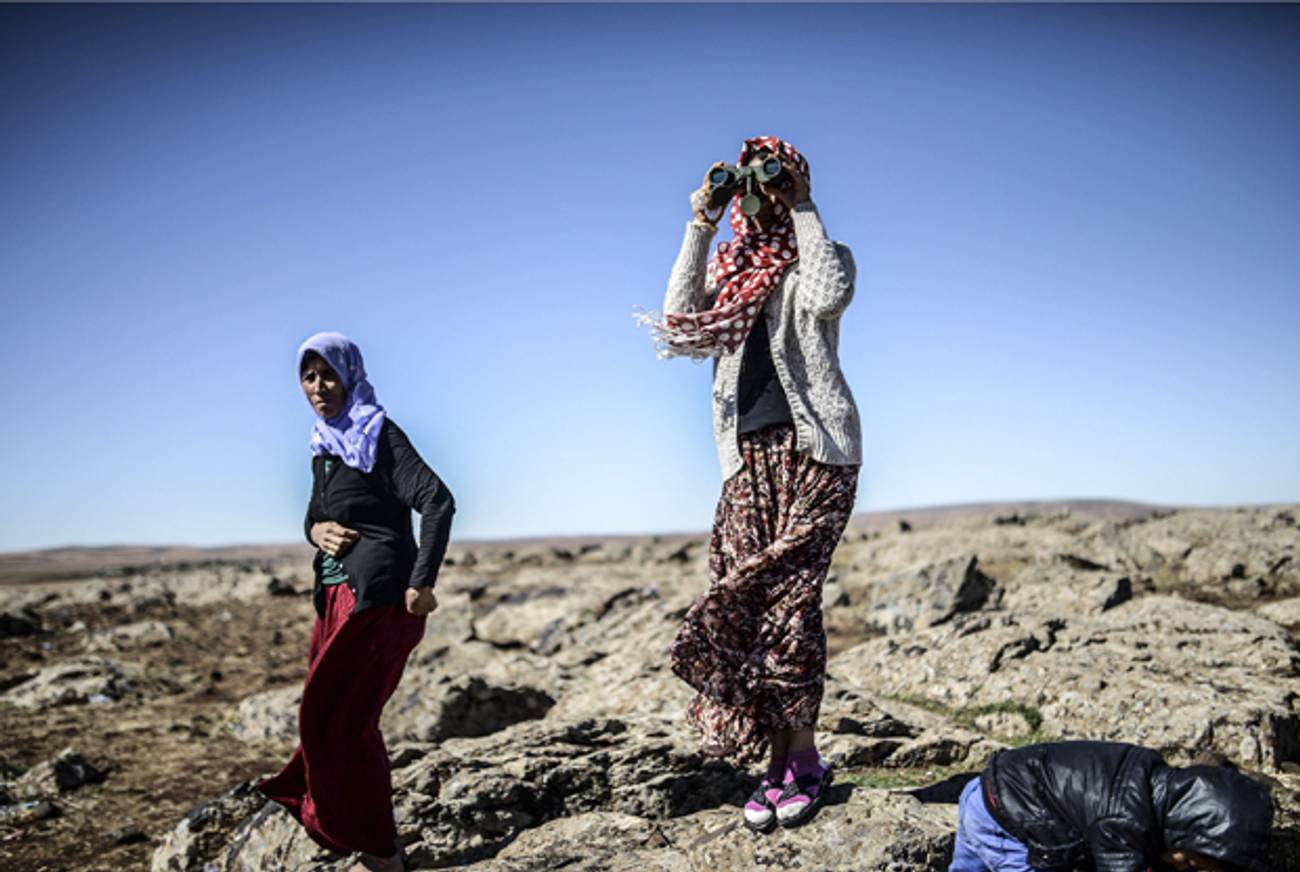Rooting for the Women Fighting ISIS in Syria
But defeating the brutal jihadist group will require international assistance




“Never again,” the world vowed in the middle of the last century. But here we are—again. Our ‘never’ is proving heartbreakingly finite.
In between our last vow and today, there was Bosnia, Rwanda, South Sudan, and others. But the plight of the Kurds, manifested in the struggle against ISIS over the Syrian city of Kobani, is different. When it came to Hutu and Tutsi, we wanted the slaughter to cease. But in Kobani, I want the Kalashnikov-wielding women, with hair cascading down their backs, smiling winningly at the camera showing the victory sign, to win. Rather, I want them to obliterate their enemy, the militant group known as ISIS, who have taken to calling themselves the Islamic State.
To me, none of this is about Islam at all. (When the KKK don their ghastly white costumes and hang crosses around their necks, we do not look for the sources of their barbarity in the lines of the New Testament. We, rightly, throw the book at them.) This is, for the most part, a new chapter in the war on women. That war disguises itself behind the mask of Islam to bully and silence Westerners and keep them at bay. The atrocities committed against women are explained as an exercise of rites and traditions.
I am no scholar of Islam, or any other religion for that matter. But our judgment in response to this cataclysm ought not to come from policy debate. Nor should we seek the answer in the words of any scripture. Our response must come from the gut, dictated by the intuition that we exercise when we articulate our hopes and wishes for our own daughters and their futures. The women fighting in Kobani, alongside the Kurds—who have been our most steadfast allies in a lethal region—are our daughters. They are not fighting Islam. They are fighting misogyny. Their loss is our loss. Their failure will set us all back. Our daily mantra, our 11th commandment, must become, as Hillary Clinton said at the 1995 World Conference of Women in China: “Women’s rights are human rights.” The addendum to that in 2014 should be: …and human rights are global.
Most experts say that America no longer is, nor will it again be, capable of exercising supremacy as all the rest of the weaker countries move to become more powerful and democratic. That’s welcome news! But while Indian engineers may be outwitting NASA by their shoestring space operations, America may still have a chance, a possibility of redemption, for exercising moral supremacy in the world. Besides, winning hearts and minds can’t possibly be bad for business.
Making apologies is honorable for it is a mark of humility. But more honorable yet is to find a way to avoid having to make them in the first place. Like the one President Clinton made to Rwandans in March 1998 in Kigali, for “not acting quickly enough after the killing began.” There are certain award-winning films whose making must be prevented. Remember Hotel Rwanda? And certain chapters in future presidential memoirs that ought not to be written. Those in President Obama’s inevitable memoir a few short years from now are one.
Some of its lines seem to be writing themselves already: “ … I realized only too late that indecision is as destructive as a bad decision.” Or some such. But that is a book I only want to read never again.
Roya Hakakian is a scholar in residence at the Woodrow Wilson Center for International Scholars and the author of, most recently, Assassins of the Turquoise Palace, about the 1992 assassination of Iranian Kurdish leaders in Berlin, Germany.
Previous: Iraqi Insurgents Boast They’re Building an Arab Super-State
Related: Evil Is a Dirty Word
Meet the Kurds, a Historically Oppressed People Who Will Get Their Own State
Roya Hakakian is the author of two books of poetry in Persian. Her memoir of growing up Jewish in post-revolutionary Iran, Journey from the Land of No, received, among others, Elle Magazine Readers’ Choice Award.